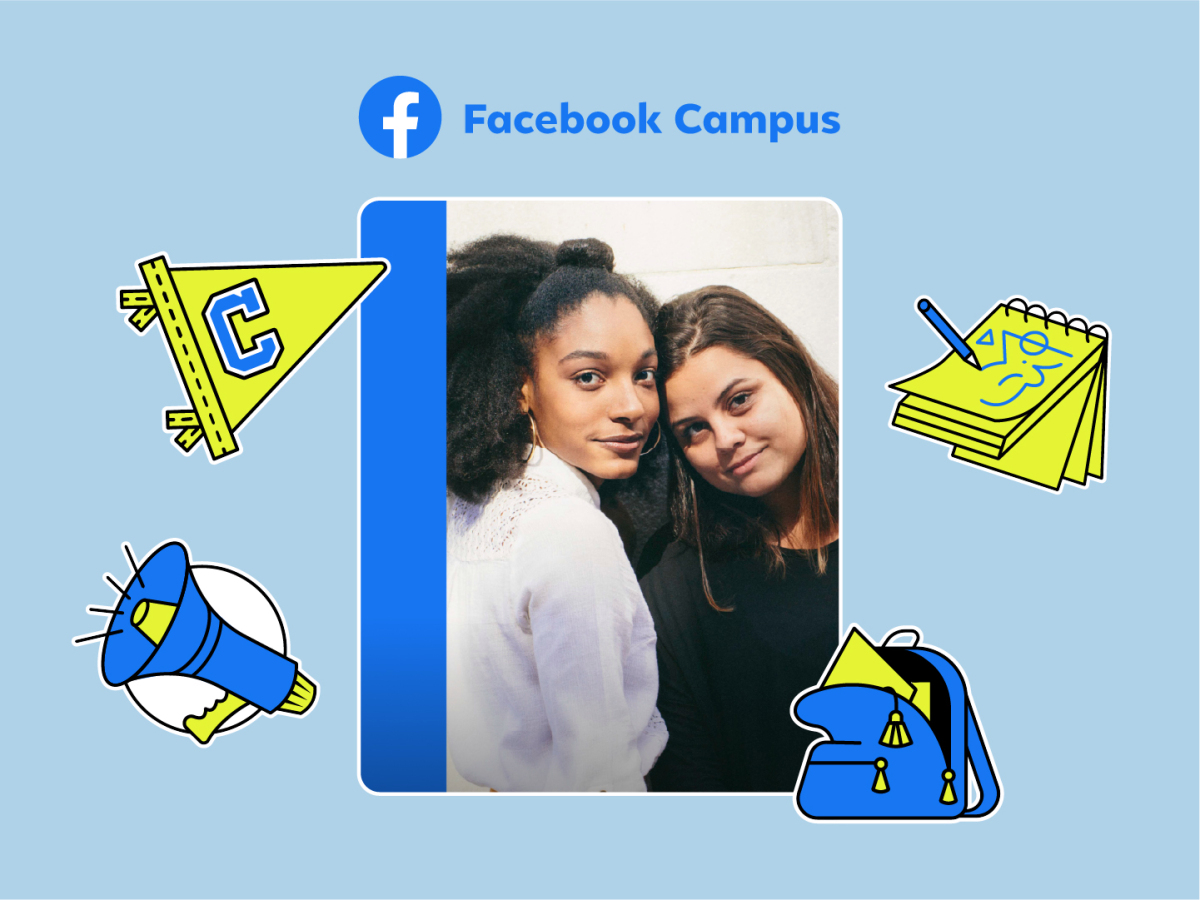Facebook just invented … Facebook

Facebook unveiled a new product today called Facebook Campus: “a college-only space designed to help students connect with fellow classmates over shared interests.”
Sound familiar? Campus appears to be a throwback to the first days of Facebook, when a person had to have a college email address and attend a select group of universities to be able to join. Charmaine Hung, Campus’s product manager at Facebook, said as much in a press release: “In the early days, Facebook was a college-only network, and now we’re returning to our roots with Facebook Campus to help students make and maintain these relationships, even if they’re away from their college.” Campus is currently available only to students at 30 US universities and requires a college email address to register.
So what is it? It’s a separate profile linked to a Facebook profile. Students can enjoy special-interest groups and check out events that are occurring around campus. (Yes, we’re having déjà vu too.) Campus also promises a personalized news feed dedicated to campus-only shindigs, as well as a searchable directory.
Is there anything original? Perhaps the most noteworthy departure from the original iteration of Facebook is the chat function. Campus Chats are real-time, which means anyone can join at any time and chime in—a lot like how people interact on streaming platforms like Twitch or livestreams on YouTube and Instagram.
Is this… safe? It’s too early to tell, but safety and privacy are definitely concerns here, particularly given how easy it is to search profiles linked to Facebook accounts. Facebook says creating a profile requires only a college email address and graduation year— it’s up to you to add any other information. In a separate post titled “Privacy Matters,” however, Facebook states: “People who sign up for Campus and are part of your college community will be able to see your Campus profile and the content you post in Campus.” And while Facebook says that colleges don’t have access to chats and pages, it doesn’t say the same for the company itself.
Facebook is really trying to diversify its services. In an election year, and after dealing with many negative blows to its image, Facebook is trying to reestablish itself as the original social-media company, which in the case of Campus means turning back to its roots. Last year, the company launched Facebook Dating, and about a year before that, it launched Facebook Messenger Kids. These new offerings are Facebook’s way of capitalizing on what its own trademark product has shown: that personalized micro-networks gathering people of similar demographics and interests are a powerful way to form community online.
It’s all up to Gen Z. Facebook’s privacy legacy—or lack thereof—has left a sour taste in consumers’ mouths, and Gen Z has vastly preferred Facebook’s other product, Instagram. Facebook hopes that playing to its original strengths by creating a virtual community during an unprecedented back-to-school season will help reinvigorate its reputation as a fresh, hip, conscious brand. The question is—will Gen Z buy it?
Deep Dive
Humans and technology
Building a more reliable supply chain
Rapidly advancing technologies are building the modern supply chain, making transparent, collaborative, and data-driven systems a reality.
Building a data-driven health-care ecosystem
Harnessing data to improve the equity, affordability, and quality of the health care system.
Let’s not make the same mistakes with AI that we made with social media
Social media’s unregulated evolution over the past decade holds a lot of lessons that apply directly to AI companies and technologies.
Stay connected
Get the latest updates from
MIT Technology Review
Discover special offers, top stories, upcoming events, and more.